- Clone
- DX22 (See other available formats)
- Regulatory Status
- RUO
- Other Names
- KP43
- Isotype
- Mouse IgG1, κ
- Ave. Rating
- Submit a Review
- Product Citations
- publications
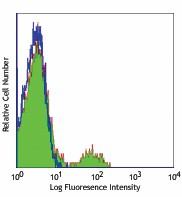
-

Human peripheral blood lymphocytes stained with DX22 FITC
CD94 is a 43 kD type II transmembrane glycoprotein also known as KP43. CD94 belongs to the C-type lectin superfamily and is present as a covalently linked heterodimer with NKG2 on the cell surface. CD94 is expressed by NK cells, a subset of γδ T cells, and NKT cells. The CD94/NKG2A complex serves as an inhibitory receptor specific for HLA-class I molecules.
Product DetailsProduct Details
- Verified Reactivity
- Human
- Reported Reactivity
- African Green, Baboon, Cynomolgus
- Antibody Type
- Monoclonal
- Host Species
- Mouse
- Immunogen
- NK cell line
- Formulation
- Phosphate-buffered solution, pH 7.2, containing 0.09% sodium azide and BSA (origin USA)
- Preparation
- The antibody was purified by affinity chromatography, and conjugated with FITC under optimal conditions.
- Storage & Handling
- The antibody solution should be stored undiluted between 2°C and 8°C, and protected from prolonged exposure to light. Do not freeze.
- Application
-
FC - Quality tested
- Recommended Usage
-
Each lot of this antibody is quality control tested by immunofluorescent staining with flow cytometric analysis. For flow cytometric staining, the suggested use of this reagent is 5 µl per million cells in 100 µl staining volume or 5 µl per 100 µl of whole blood.
- Application Notes
-
Additional reported applications (for the relevant formats) include: immunoprecipitation4, inhibition of NK cell-mediated lysis5, immunohistochemical staining of acetone-fixed frozen tissue sections, and spatial biology (IBEX)6,7.
-
Application References
(PubMed link indicates BioLegend citation) -
- Mizuki M, et al. 2000. Sarcoidosis Vasc. Diffuse Lung Dis. 17:54.
- Phillip J, et al. 1996. Immunity 5:163.
- Lazetic S, et al. 1996. J. Immunol. 157:4741.
- Lanier LL, et al. 1998. Immunity 8:693.
- Wooden SL, et al. 2005. J. Immunol. 175:1383.
- Radtke AJ, et al. 2020. Proc Natl Acad Sci USA. 117:33455-33465. (SB) PubMed
- Radtke AJ, et al. 2022. Nat Protoc. 17:378-401. (SB) PubMed
- Product Citations
-
- RRID
-
AB_314534 (BioLegend Cat. No. 305504)
Antigen Details
- Structure
- C-type lectin, type II transmembrane glycoprotein, covalently associates with NKG2, 43 kD
- Distribution
-
NK cells , T subset
- Function
- Inhibits NK function
- Cell Type
- NK cells, T cells
- Biology Area
- Immunology, Innate Immunity
- Molecular Family
- CD Molecules
- Antigen References
-
1. Lopez-Botet M, et al. 1997. Immunol. Rev. 155:165.
2. Moretta A, et al. 1997. Immunol. Rev. 155:105. - Gene ID
- 3824 View all products for this Gene ID
- UniProt
- View information about CD94 on UniProt.org
Related FAQs
Other Formats
View All CD94 Reagents Request Custom Conjugation| Description | Clone | Applications |
|---|---|---|
| APC anti-human CD94 | DX22 | FC |
| FITC anti-human CD94 | DX22 | FC |
| PE anti-human CD94 | DX22 | FC,SB |
| Purified anti-human CD94 | DX22 | FC,IHC-F |
| Alexa Fluor® 647 anti-human CD94 | DX22 | FC |
| PerCP/Cyanine5.5 anti-human CD94 | DX22 | FC |
| PE/Cyanine7 anti-human CD94 | DX22 | FC |
| APC/Fire™ 750 anti-human CD94 | DX22 | FC |
| PE/Dazzle™ 594 anti-human CD94 | DX22 | FC |
| TotalSeq™-A0867 anti-human CD94 | DX22 | PG |
| TotalSeq™-C0867 anti-human CD94 | DX22 | PG |
| PE/Fire™ 810 anti-human CD94 | DX22 | FC |
| TotalSeq™-B0867 anti-human CD94 | DX22 | PG |
| TotalSeq™-D0867 anti-human CD94 | DX22 | PG |
| APC anti-human CD94 | DX22 | FC |
| APC/Cyanine7 anti-human CD94 | DX22 | FC |
| FITC anti-human CD94 | DX22 | FC |
| GMP APC anti-human CD94 | DX22 | FC |
Customers Also Purchased
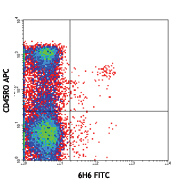
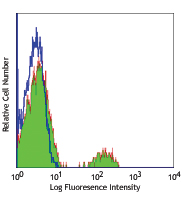
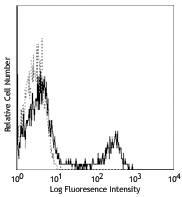
Compare Data Across All Formats
This data display is provided for general comparisons between formats.
Your actual data may vary due to variations in samples, target cells, instruments and their settings, staining conditions, and other factors.
If you need assistance with selecting the best format contact our expert technical support team.
-
APC anti-human CD94
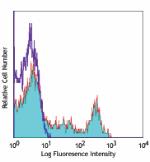
Human peripheral blood lymphocytes stained with DX22 APC -
FITC anti-human CD94
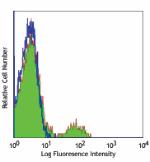
Human peripheral blood lymphocytes stained with DX22 FITC -
PE anti-human CD94
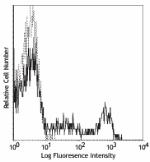
Human peripheral blood lymphocytes stained with DX22 PE 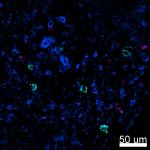
Confocal image of human lymph node sample acquired using the... -
Purified anti-human CD94
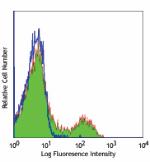
Human peripheral blood lymphocytes stained with purified DX2... -
Alexa Fluor® 647 anti-human CD94
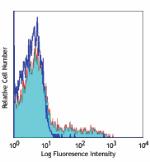
Human peripheral blood lymphocytes stained with DX22 Alexa F... -
PerCP/Cyanine5.5 anti-human CD94
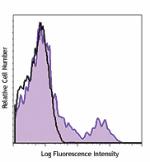
Human peripheral blood lymphocytes were stained with CD94 (c... -
PE/Cyanine7 anti-human CD94
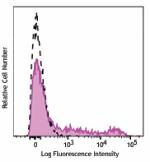
Human peripheral blood lymphocytes were stained with CD94 (c... -
APC/Fire™ 750 anti-human CD94
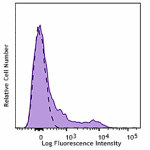
Human peripheral blood lymphocytes were stained with CD94 (c... -
PE/Dazzle™ 594 anti-human CD94
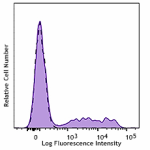
Human peripheral blood lymphocytes were stained with CD94 (c... -
TotalSeq™-A0867 anti-human CD94
-
TotalSeq™-C0867 anti-human CD94
-
PE/Fire™ 810 anti-human CD94
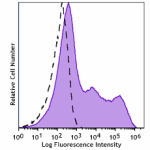
Human peripheral blood lymphocytes were stained with anti-hu... -
TotalSeq™-B0867 anti-human CD94
-
TotalSeq™-D0867 anti-human CD94
-
APC anti-human CD94
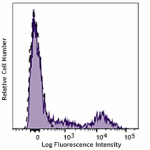
Typical results from human peripheral blood lymphocytes stai... -
APC/Cyanine7 anti-human CD94

Human peripheral blood lymphocytes were stained with anti-hu... -
FITC anti-human CD94

Typical results from human peripheral blood lymphocytes stai... -
GMP APC anti-human CD94

Typical results from human peripheral blood lymphocytes stai...










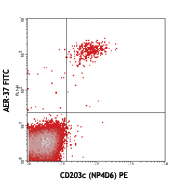



Follow Us